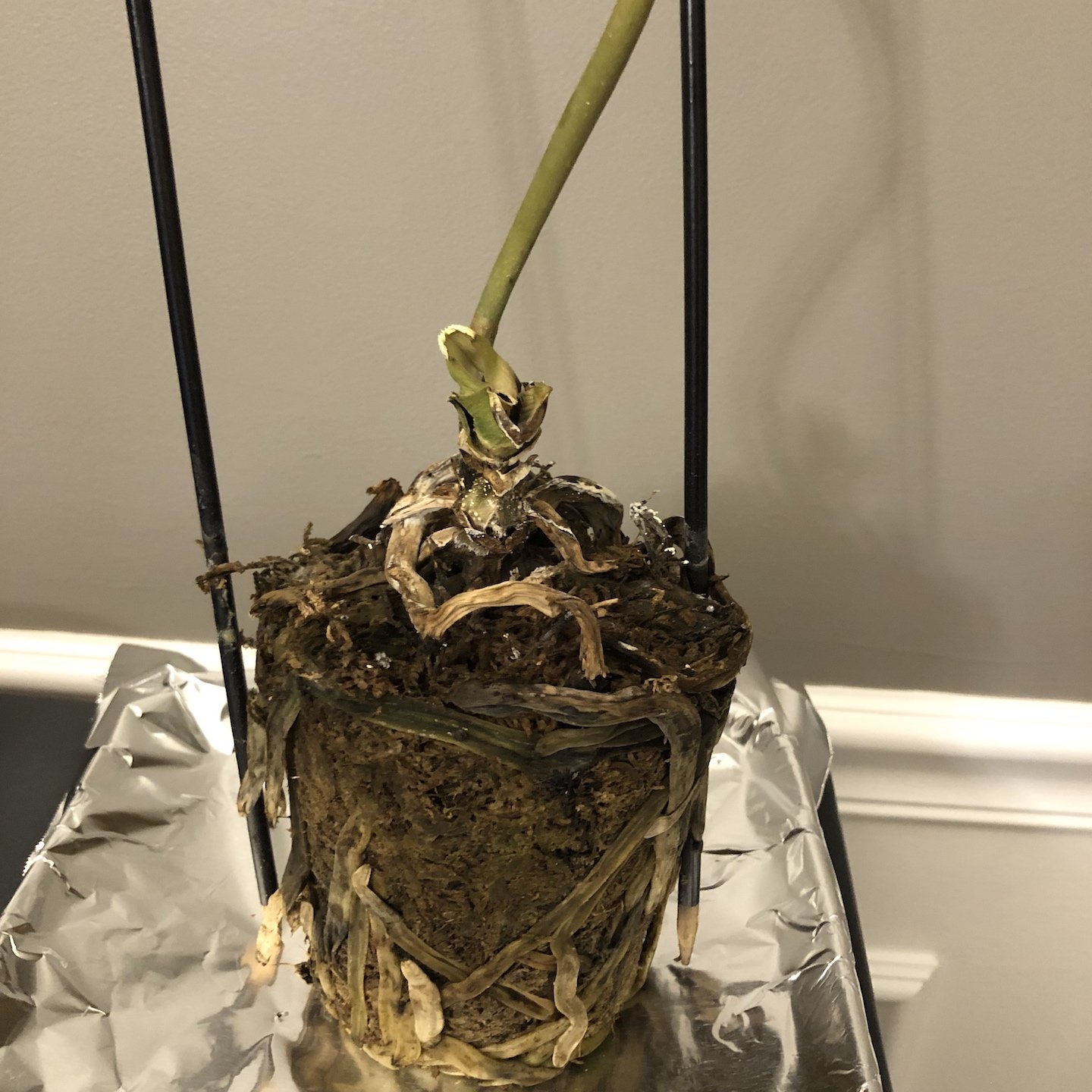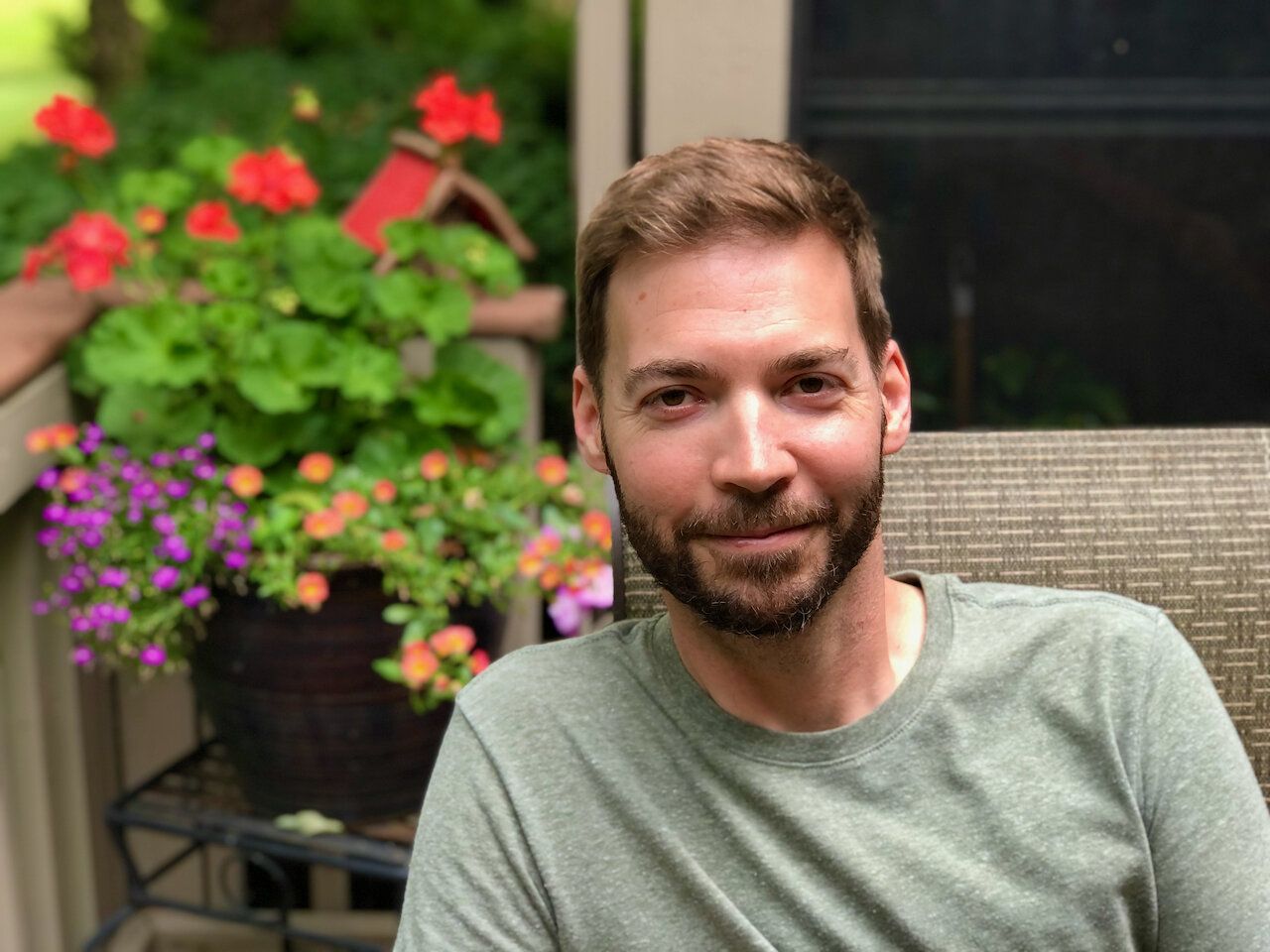The Wisdom of a Rotting Orchid
Oct 17
/
Aaron Stamper

At a grocery store a few months ago, I bought a potted orchid.
My spouse seemed pleased when I showed her my latest impulse purchase. We placed it by a window with no direct light (according to the directions). Every once in a while we would gently place ice cubes on the surface of its soil (a method of watering encouraged by my mother-in-law who has the greenest thumbs of anyone I’ve ever met).
We enjoyed the beautiful plant with its splashes of purple. Once we even congratulated each other on keeping it alive.
However, the flowers eventually became brittle and translucent. As the flowers dropped, we notice a second spike (I’d call it a stem, but I googled it, and apparently it’s a spike). I figured this was normal and that the next set of flowers would be bigger and even more beautiful. The new spike grew and eventually produced buds, but these immediately became brittle and translucent.
After several weeks of placing ice cubes on a flowerless orchid, I accidentally bumped the plant and a leaf fell off. I gently touched other leaves and, one by one, they effortlessly relinquished their hold on the orchid with the slightest of encouragement.
I inspected the soil and noticed it was quite wet. I pulled the entire root ball (or “medium” if we’re sticking with the proper terms) out of the vase and was able to squeeze out a couple of ounces of foul-smelling water.
For the last few days, this naked orchid has been sitting on a plate in an attempt to dry out. I haven’t transported it to the compost bin yet, but the once vibrant green of the plant has now given way to a sickly brown hue.
This orchid was rotting before our very eyes but we did not realize it. I feel like drawing some spiritual lessons from this story is the very least I can do to honor the life of this plant. So, here’s what my rotting orchid is teaching me:
We’re called to pay attention to what’s happening below the surface. The orchid was in my possession for several months and I only ever bothered to inspect the soil until it was too late. Too often I allow my many assumptions to dictate my actions. The orchid is not the only thing I have harmed by assuming it was fine.
The better path is to approach life and relationships with curiosity and attentiveness. It is difficult to know the backstory of one’s decisions and actions, but it’s our responsibility to seek greater understanding.
Spiritual care requires more than the minimum effort and attention. I never took the time to keep track of how often I watered the orchid and how wet the soil was, nor research expert tips on how to care for it. I didn’t neglect the plant entirely, but I didn’t direct much energy to its care either.
There’s really no such thing as a bare minimum amount of energy that can keep a relationship alive. After all, if one or both people in a relationship are doing the minimum, it can’t be a healthy relationship. My hunch is that we know when we’re not putting much effort into our relationships with others, ourselves, or with the Divine. It’s a matter of remembering that there’s something valuable at stake.
Some are inclined to suffer silently. If only my orchid could have yelled out, grabbed my hand as I passed by, or telepathically communicated its plight to me…but alas, it did not have the ability to do so.
It suffered in silence, even as it put on a vibrant display of color that convinced me it was doing just fine. I’d venture a guess that the majority of people with whom I interact on a daily basis would handle or are handling their suffering in exactly the same way.
Silent suffering is considered virtuous in every culture I’ve experienced. No one wants to be a bother. No one wants to impose. Therefore, we sever the connection with our own needs and desires, lest someone think of us as needy.
We are invited to learn from our mistakes. I killed that orchid. I could let that fact haunt me and internalize it as an inherent character flaw that means I have no business caring for another living thing. Or, I can build up my knowledge base so that I am better prepared to care for the next plant that finds its way into my home.
Shame and fear stunt our emotional, intellectual, and spiritual growth. Our invitation is to admit and learn from our mistakes; to recognize that we were not born with the ability to get everything right the first time. There is much value and beauty in the liturgical practice of private and public confession and forgiveness. We put language to our mistakes in order to put them in their proper position in our lives…as foundations over which to grow.
May you take this story as an invitation to check in on the things and people in your life that you play some role in nourishing. Check to see if your plant’s soil is the right moisture. Ask a loved one how they’re doing, and stick around long enough to hear their honest answer. Open yourself up to the divine and discover that you are being held and nurtured.
Question to consider:
How do you prefer to handle your mistakes? Hide them away or hold them up as learning experiences?
Where/how/from whom did you learn this approach?

Aaron Stamper
Aaron Stamper, M.Div, is a former pastor and interfaith hospital chaplain who has found his calling as a spiritual director through Spiritus Center. He is a contemplative at heart and is happy to connect with others and with the divine in a church, a walk through the woods, an honest conversation, or in the pages of scripture. Residing in Columbus, Ohio, he is able to serve as a digital soul companion to people across geographic boundaries. Aaron earned an M.Div degree from Fuller Theological Seminary, a Certificate in Christian Spiritual Formation from the Renovaré Institute, and a Certificate in Spiritual Direction from George Fox University. He served as an ordained minister in the Evangelical Lutheran Church in America (ELCA) for 12 years and has a particular gift for accompanying pastors through their unique challenges. Learn more (and read Aaron's book) at www.spirituscenter.org.

